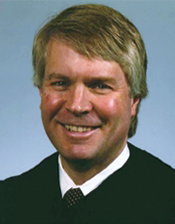
Today, as part of a group of law professors around the country with interests in the mutual funds and employee benefits area, I helped to draft and signed on to an amicus brief which asked for the Seventh Circuit Court of Appeals to grant rehearing en banc in the ERISA case of Hecker v. Deere & Company. The case concerns an issue of tremendous importance for American workers’ retirements: the appropriate scope of a fiduciary duty under ERISA in the context of personal savings and mutual fund fees.
In Hecker, a 7th Circuit panel affirmed the decision of the district court of the Western District of Wisconsin, which found a group of employee-plaintiffs did not state a claim for relief under ERISA when their employer, Deere, allegedly did not provide a sufficient menu of mutual fund options for their 401(k) retirement plan accounts. Although the brief argued in part that the panel inappropriately adopted a remarkably narrow interpretation of fiduciary duty that relied crucially upon an assumption that the underlying market for mutual funds is vibrant and competitive, my part of the brief involved the proper fiduciary standard for employers who run 401(k) accounts under so-called 404(c) plans.


